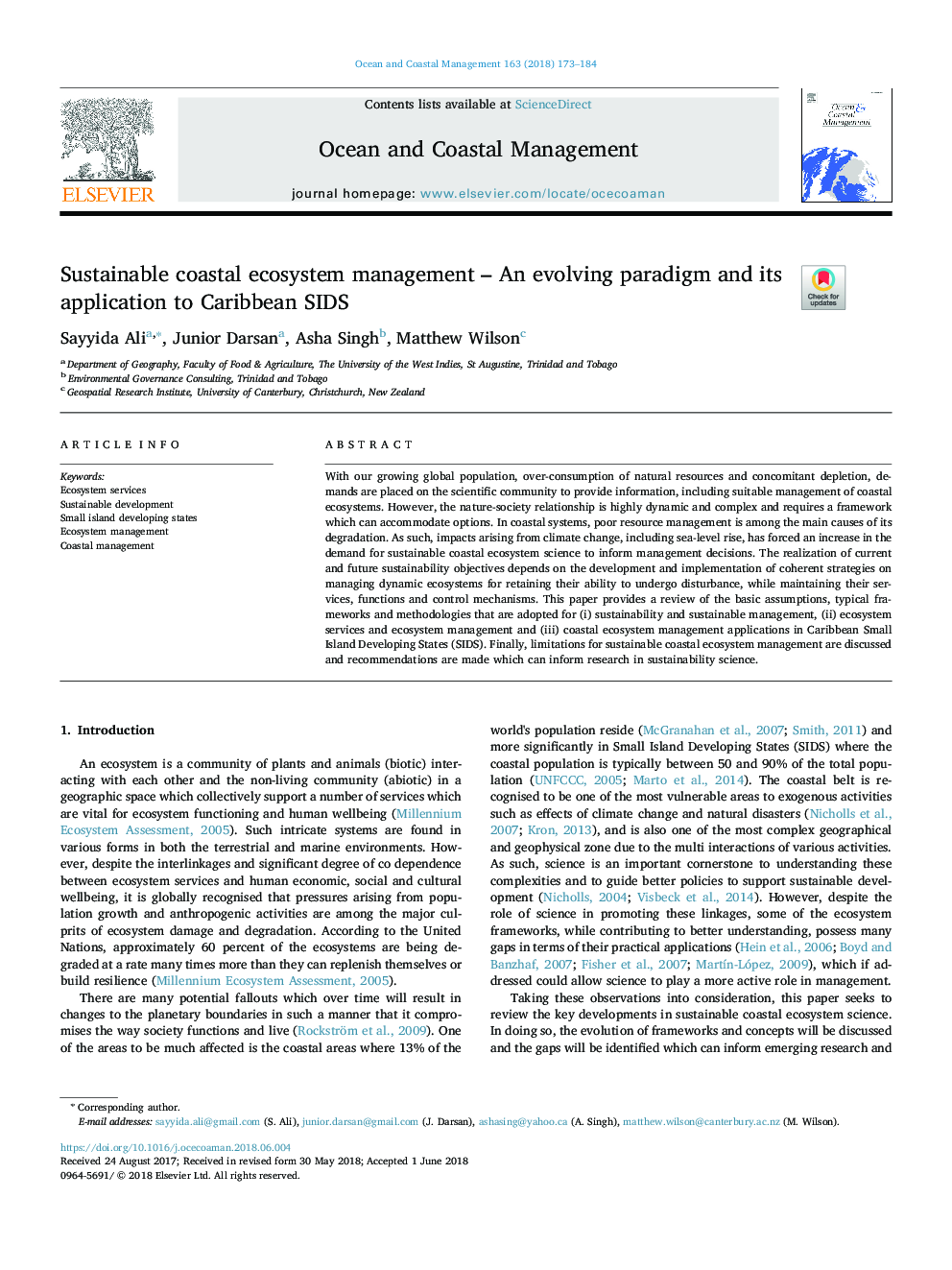| Article ID | Journal | Published Year | Pages | File Type |
|---|---|---|---|---|
| 8060564 | Ocean & Coastal Management | 2018 | 12 Pages |
Abstract
With our growing global population, over-consumption of natural resources and concomitant depletion, demands are placed on the scientific community to provide information, including suitable management of coastal ecosystems. However, the nature-society relationship is highly dynamic and complex and requires a framework which can accommodate options. In coastal systems, poor resource management is among the main causes of its degradation. As such, impacts arising from climate change, including sea-level rise, has forced an increase in the demand for sustainable coastal ecosystem science to inform management decisions. The realization of current and future sustainability objectives depends on the development and implementation of coherent strategies on managing dynamic ecosystems for retaining their ability to undergo disturbance, while maintaining their services, functions and control mechanisms. This paper provides a review of the basic assumptions, typical frameworks and methodologies that are adopted for (i) sustainability and sustainable management, (ii) ecosystem services and ecosystem management and (iii) coastal ecosystem management applications in Caribbean Small Island Developing States (SIDS). Finally, limitations for sustainable coastal ecosystem management are discussed and recommendations are made which can inform research in sustainability science.
Keywords
Related Topics
Physical Sciences and Engineering
Earth and Planetary Sciences
Oceanography
Authors
Sayyida Ali, Junior Darsan, Asha Singh, Matthew Wilson,
